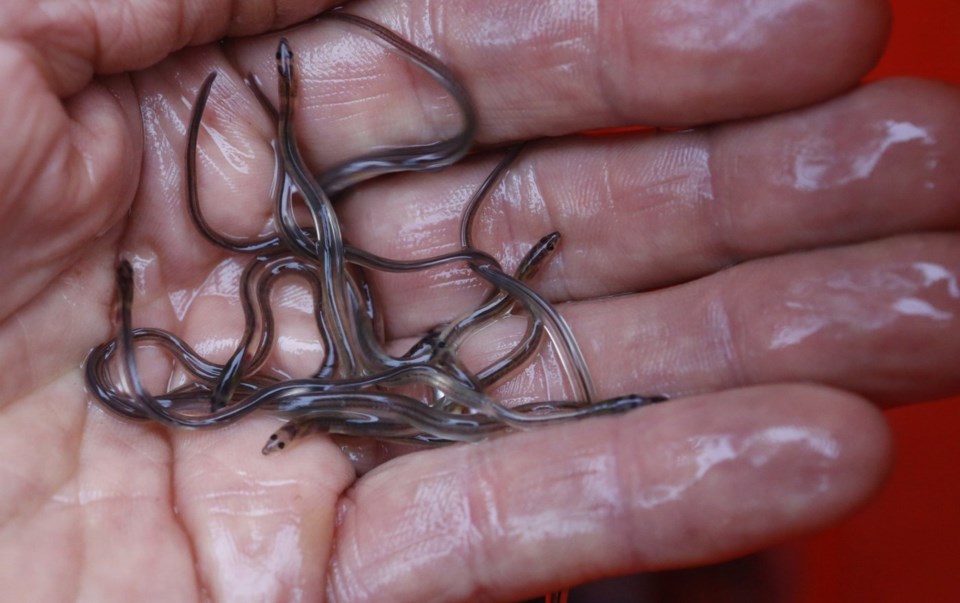HALIFAX — Federal Fisheries Minister Diane Lebouthillier has shelved a controversial proposal that would have shifted baby eel quota away from longtime licence holders to their employees.
In December, Ottawa announced a "pilot project" to redistribute 27 per cent of the Maritime catch of about 10,000 kilograms of baby eels — known as elvers — from nine licence holders to 120 people who would operate on their own.
Each of the 120 recipients — who had previously worked for the commercial licence holders — would have gained the right to catch 22 kilograms of the translucent eels in rivers this spring. The price for a kilogram of elvers has been as high as $3,000 in recent years, but there are fluctuations from season to season, industry representatives say, with prices falling to about $1,000 in 2020.
A number of the fishers set to receive the quota under the pilot project spoke out against it, saying they preferred being employees and would feel less safe having to operate on their own.
In a news release Thursday, Lebouthillier said she has listened to feedback and concluded the 2025 elver season "will not include the pilot program."
"We're tremendously happy with the decision," said Stanley King, a manager of Atlantic Elver Fishery Ltd., one of the nine licence holders.
Darren Johnson, an elver fisher who worked for licence holder Neptune Canada Ltd., also said the decision is good news, as he didn't want to attempt to run his own business and purchase expensive equipment.
“I’m happy to hear it .... I’d much rather fish for Neptune. We don’t have the infrastructure to hold the elvers,” the 60-year-old fisher said in an interview Thursday.
The Canadian Committee for a Sustainable Eel Fishery, which represents five of the commercial licence holders, expressed relief. "With so many changes to for this coming 2025 season, including new regulations and the addition of several hundred licensed Indigenous fishers, the potential for more chaos and premature closure was just too high," committee president Genna Carey wrote in a news release.
The group said the minister has not changed a separate plan to transfer about half of the quota to Indigenous fishers, "without compensation" for the original licence holders.
King said this means many questions remain to be dealt with before the season opens on March 1.
"We still haven't finalized which river systems we are going to be left with," he said. "There's going to be a lot more decisions to come in the next few weeks. The sooner the government makes them, the better off the industry will be so we can start to plan for our season."
The Association of Nova Scotia Mi'kmaw Chiefs said Thursday they're pursuing a model in which the Indigenous quota would be spread across a number of communities.
"In this plan, these Mi'kmaw communities propose to take charge of managing designated waterways, ensuring that access is distributed fairly and equitably," the association said in a news release. "The plan is to spread the fishing effort across mainland Nova Scotia by assigning specific waterways to individual harvesters or communities, to help reduce conflicts with non-Indigenous participants and the public."
The chiefs said in the release that they're calling on DFO "to recognize this harvester-focused model and show support for Mi'kmaq communities who want to help to build the infrastructure, knowledge, and governance needed for the fishery's long-term sustainability."
This report by The Canadian Press was first published Jan. 23, 2025.
Michael Tutton, The Canadian Press



